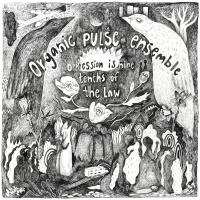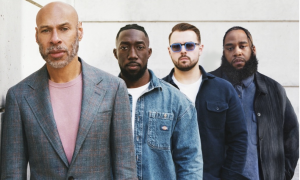On a personal note, interviewing Laurie on Evans was among the most difficult I've conducted over the past two years. Laurie was perfectly forthcoming and candid. But Evans has long been a jazz hero of mine. I had seen him perform several times in the 1970s in Boston and New York, and had even managed my way through several piano transcriptions in the early 1970s. As anyone knows who has played these transcriptions, they put you on a more intimate basis with his creative mindset. To hear Laurie talk about the raw struggle Evans endured with his art and demons toward life's end was both shocking and fascinating. Honesty can be that way.
In Part 3 of my interview series with Laurie, she talks about Evans' enigmatic mix of sensitivity and self-destruction, Miles Davis' taunting treatment of Evans and Evans' reaction, how Evans viewed his own ego, and why manager Helen Keane stopped communicating with him toward the end of his life:
JazzWax: During the period you knew Bill Evans, was his music coming from a place of pain?
Laurie Verchomin: There might have been some emotional pain, but not physical pain. He wasn't really experiencing physical pain. He chose not to experience physical pain thanks to the drugs he was taking. He was using those drugs to keep himself going.
JW: Why?
LV: Bill didn't need a doctor to tell him he had only so many months to live. It was clear to him. Any rational person would have known that. He was very much in a state of ecstasy. Given the drugs and knowing that you're going to be leaving this world soon, you're in an ecstatic state because you're trying to get everything you can out of every moment.
JW: Did it ever strike you that in Evans, you had extreme beauty and sensitivity and ugliness and self-loathing all at the same time?
LV: The contrasts were very extreme. That's what was so shocking. There were really ugly parts of the relationship and really beautiful parts. It's like New York City. What has always attracted me about New York is the enormous amount of high culture set in a filthy grimy tension-producing place. But that's what makes it special. The contrasts. The puzzle.
JW: Was Evans two different people or one?
LV: With Bill, it wasn't as though he was divided between two different personalities. He showed me that it was all one thing: creativity and destruction. You couldn't separate out the beauty of his art and the ugliness of his addiction and physical state. They were one in the same, feeding off each other.
JW: What was Evans' biggest fear?
LV: Bill wasn't afraid of performing. He was a professional. I got the sense that when he looked into my eyes, whatever fears he had he was offering them up to me. It was a strange experience.
JW: Did Evans talk much about his period with Miles Davis?
LV: Miles and Bill were still in touch when I was with Bill. One day Bill asked me if I wanted to meet Miles. But from what he had told me about him, it was all too much for me. Miles was in a crazy place back then. He was living in seclusion and had a wacky life going on. He was hanging out with transvestites and had an entourage of kinky people coming and going from his place. He had created quite an out-there life. He was even farther out than Bill. Given what I had going with Bill, going over to Miles' place would have been too much for me. It would have been too surreal and overwhelming.
JW: What did Evans think of Davis?
LV: I got the feeling that Miles wasn't a nice person. Bill said Miles would go out of his way to tease him in different ways, to take him out, throw him off his game. I don't know why Miles did that to him, but it did seem cruel. Bill said they'd go out on the road [in 1958], and Miles would say things to Bill to put him on. Bill was innocent and vulnerable. He didn't expect those kinds of things. Bill said Miles [in 1958] came on to him sexually as a joke. Miles said something like, “If you're going to be in the band, you're going to have to have sex with me." Bill took Miles' words seriously, and Miles' constantly played with Bill's head, which was upsetting to Bill.
JW: Why?
LV: Bill at heart was a really nice person. He liked to have really nice people around him. When you're a nice person and you have nice people around you, you don't say things like that. Miles wasn't very respectful in those kinds of ways. I don't think Miles was as spiritually evolved as Bill.
JW: Was Bill egocentric?
LV: No, not at all. He had looked at his ego when he was young. He drew this diagram for me. It was a diagram of his Jungian perspective of super ego and rebuilt ego. When you see your ego this way, you can step back and look at it and analyze the conditioning of your early childhood experiences and understand what is needed to rebuild the ego so you're operating from a proactive place. That's what made Bill such a great person to be with. He did a lot of reading of Eastern philosophy and of [psychiatrist Carl] Jung's works. Bill was highly developed in a spiritual way.
JW: Did Evans get hooked on heroin in Miles Davis' group, as some books claim?
LV: Bill didn't talk about it. But he did say his addiction had started before joining Miles' sextet. Bill said he came to heroin on his own. It was around the time he joined Miles but it wasn't through Miles. It happened in New York, with a group of musicians he was close with. It may have been a very acceptable form of behavior for musicians at that time. Bill had other friends who were musicians. Some were experimenting. He joined in on it.
JW: Who were the musicians?
LV: I don't want to say. I heard who it was from someone other than Bill, so repeating names wouldn't be fair.
JW: What did Helen Keane, Evans' manager and producer, think about his destructive side?
LV: Helen was white-knuckling it over the last few years. The whole situation was out of control. She made me the road manager, meaning I was supposed to collect the cash from the clubs. She had handed over the responsibility of paying Bill's rent and other bills to an accountant. There were problems with the IRS. It was all surreal. [Pictured: Helen Keane and Bill Evans]
JW: Was Helen unable to cope?
LV: I think Helen was doing the best she could given her abilities. She had had a long relationship with Bill and had brought him through a lot. But near the end, it was unbearable for the two of them to communicate.
JW: How so?
LV: Helen couldn't handle the stress of where he was headed. Bill didn't need or want the extra financial stress either. Toward the end, she didn't want to be in close personal contact with him any more. [Pictured: Keane and Evans]
Tomorrow, Laurie talks about how Evans composed in their New Jersey apartment, grappling with Evans' cocaine habit, what it was like taking piano lessons from Evans, and why Evans enjoyed socializing at the racetrack.
Photo of Laurie in early 1980 (top of page) courtesy of Laurie Verchomin. Laurie is working on a book about her relationship and experiences with Bill Evans. For more, visit Laurie's site here.
JazzWax tracks: Bill Evans' first album after starting his relationship with Laurie is the much overlooked and somewhat prophetic We Will Meet Again (Warner Brothers) recorded in August 1979 and dedicated to his late brother Harry. This was his last studio recording. Going forward, Evans would be recorded live through early-September 1980.
Rather than record with just his trio (Marc Johnson on bass and Joe LaBarbera on drums), Evans was joined on different tracks by trumpeter Tom Harrell and saxophonist Larry Schneider. He also recorded two tracks solo. We Will Meet Again won a Grammy in 1981 for Best Instrumental Jazz Performance.
You'll find We Will Meet Again at iTunes, Amazon and other online retailers.
This story appears courtesy of JazzWax by Marc Myers.
Copyright © 2026. All rights reserved.





















